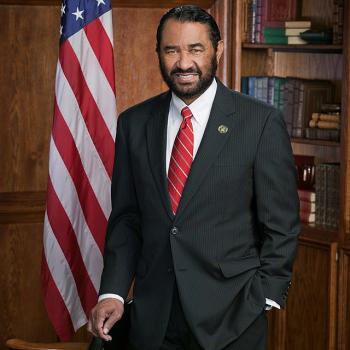As an American, I find British law confusing, which, I expect is equally true of the British when they try to consider American law.
My understanding of the current legal situation concerning sex selected abortion in Britain is, to put it in American terms, that the agency charged with enforcing the statute has determined that it is, if a single loophole is followed, unenforceable.
The decision was based on a request for prosecution of two doctors who agreed to perform a sex selected abortion that was part of an undercover operation by a British newspaper. The exception on which the decision not to prosecute these two doctors was based is a provision in British law that allows abortions for reason of the baby’s gender whenever two physicians certify that “continuance of the pregnancy would involve risk, greater than if the pregnancy were terminated, of injury to the physical or mental health of the woman or any existing children of her family.”
That sounds very much like the health of the mother exceptions that have allowed terminations of pregnancies right up until the baby is born here in the US. In fact, it sounds as if sex-selected abortion was already legal in Britain, even before the Crown Prosecution Service decision not to prosecute under this law. If that is true, and the law I’ve seen reads like it is, then the CPS decision was a formality.
The report from the CPS talks about the difficulty the prosecution would face proving that the doctors in question were acting in bad faith. It describes this situation as “a narrow basis for any prosecution.”
Because of these things, the CPS declined to prosecute the two doctors in question. It also, so far as I understand these things, gave an explanation as to why any prosecutions for sex-selected abortion would be extremely unlikely.
In America, we would say that the CPS had made a de facto decision legalizing same-sex abortion in Britain. I’ve read comments, including a circular and mush-mouthed statement from the Prime Minster, saying that there is no such thing as a de facto decision in British law. That leaves me wondering what they call it.
If the agency charged with enforcing a law says that they won’t enforce it because it is unenforceable, then it sounds to me like this agency has, de facto, repealed the law. In addition, if the quotations supplied by the CPS in their discussions of this decision are both accurate and inclusive of the British law on sex selected abortion, I think they are probably right. This law is unenforceable except in the rare case where a doctor is stupid enough to do a sex-selected abortion without getting another doctor to sign off on it for him or her.
So far as I know, there has not been any legislation passed in Britain formally legalizing sex-selected abortion. However, when the agency charged with enforcing a law says that they will not enforce it because the law is unenforceable, then it sounds like it’s been repealed to me.

Britian’s Prime Minister, David Cameron, affirmed this even as he denied it when he answered a question that included the statement “a female fetus in the womb today is more vulnerable than she was last week” by saying
… But in our country we do have independent prosecuting authorities. It’s very importance that they look at the evidence and they make a decision on the basis of likelihood of getting a conviction and the public interest in making a case and taking it to court. That’s how things have to work in our country, but I share her concern about what we’ve read and what has happened and it’s absolutely right that professional action should be considered as well.
For those who aren’t fluent in the language, that’s political-speak for “Yes.”
The facts as I know them — and I will be happy to write about any difference in facts as they pop up — is that sex selected abortion is now free of the threat of prosecution in Britain so long as two doctors sign off on the sex selected abortion in accordance with the parameters established under the law.
I would guess that it is possible that this law will be re-written to make it enforceable in the future. However, that may not happen. I can not predict.
Quotes from CPS communications about the decision, as well as links to the original documents, are below:

According to a letter from Keir Starmer, who is the Director of Public prosecutions to Dominic Grieve, MP, the loophole in the law is that:
The law does not, in terms, expressly prohibit gender-specific abortions; rather it prohibits any abortion carried out without two medical practitioners having formed a view, in good faith, that the health risks of continuing with a pregnancy outweigh those of termination.
… the discretion afforded to doctors under the current law in assessing the risk to the mental or physical health of a patient is wide and, having consulted an experienced consultant in Obstetrics and Gynaecology, it appears that there is no generally accepted approach among the medical profession.
There is also the difficulty that, on its face, the HSA/1 form which doctors are required to use to certify their assessment of a patient, does not require them to see or examine the patient before forming a view. Against that background, it would be very difficult for a jury to assess what may or may not be an “adequate” assessment by the doctor and there is a real risk that different juries would reach different decisions on essentially the same facts.

Procuring a miscarriage is an offence contrary to section 58 of the Offences Against the Person Act 1861. However, section 1 of the Abortion Act 1967 provides that a person should not be guilty of an offence when a pregnancy is terminated by a registered medical practitioner if two registered medical practitioners are of the opinion, formed in good faith, inter alia, that “the pregnancy has not exceeded its 24th week and that the continuance of the pregnancy would involve risk, greater than if the pregnancy were terminated, of injury to the physical or mental health of the pregnant woman or any existing children of her family”.
Thus the law does not, in terms, expressly prohibit gender-specific abortions; rather, it prohibits any abortion carried out without two medical practitioners having formed a view, in good faith, that the health risks (mental or physical) of continuance outweigh those of termination. This gives a wide discretion to doctors in assessing the health risks of a pregnant patient.
The BMA’s Handbook of Ethics and Law, published in February 2012, gives the following guidance, which is the same as guidance published in 2007:
Abortion on the grounds of fetal sex
Fetal sex is not one of the criteria for abortion listed in the Abortion Act and therefore termination on this ground alone has been challenged as out with the law. There may be circumstances, however, in which termination of pregnancy on grounds of fetal sex would be lawful. It has been suggested that if two doctors, acting in good faith, formed the opinion that the pregnant woman’s health, or that of her existing children, would be put at greater risk than if she terminated the pregnancy, the abortion would arguably be lawful under section 1(1) (a) of the Abortion Act. (see page 283) [Morgan D (2001) Issues in medical law and ethics, Cavendish Publishing, London, pp147-9]. The Association believes that it is normally unethical to terminate a pregnancy on the grounds of fetal sex alone, except in cases of severe sex-linked disorders. The pregnant woman’s views about the effect of the sex of the fetus on her situation and on her existing children should nevertheless be carefully considered. In some circumstances doctors may come to the conclusion that the effects are so severe as to provide legal and ethical justification for a termination. They should be prepared to justify the decision if challenged.” [p.287]
… The prosecution would have to be in a position to prove, beyond reasonable doubt, that the assessments carried out by the doctors was carried out in bad faith or carried out in such a way that fell below a standard which any reasonable doctor would consider adequate. In the absence of any considered medical guidance it is extremely difficult for the prosecution to undertake this exercise. Equally, it would be very difficult for a jury to assess what may or may not be an “adequate” assessment by the doctor.
It is questionable whether the interests of justice are served in bringing a prosecution where such levels of uncertainty exist. In the absence of guidance a jury would have no yardstick by which they could measure the conduct of any doctor facing prosecution. Where there is such uncertainty there is a serious risk that different juries would reach different decisions on essentially the same facts.
… As with the evidential stage of the Code test, the public interest in this case is finely balanced. But, if the narrow basis of any prosecution is kept firmly in mind, the public interest factors against prosecution outweigh those in favour. In reaching this conclusion, we fully consulted with the police who agreed with us about the public interest.
For additional information check out Frank Weathers at Why I Am Catholic.












